Khalilzad moves to prevent Taliban deal from unravelling
Says US committed to facilitating ‘prisoner exchange’
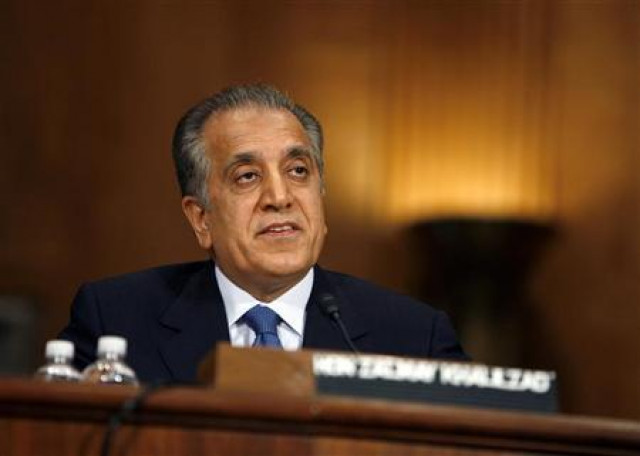
United States Special Envoy for Afghanistan Zalmay Khalilzad. PHOTO: REUTERS
US Secretary of State Mike Pompeo on Thursday there was an “unacceptable” spike in Taliban attacks, the architect of the Doha deal, Zalmay Khalilzad tweeted that his country was committed to facilitating the prisoner exchange to kick start the intra-Afghan dialogue next week.
“The upsurge in violence in parts of Afghanistan over the last couple days is unacceptable,” Pompeo said at a news conference. “Violence must be reduced immediately for the peace process to move forward,” he added.
Earlier, Khalilzad, the US envoy for Afghan peace said on Twitter that the prisoner exchange was agreed by both the US-Taliban agreement signed in Doha and the US-Afghanistan joint declaration issued in Kabul. “We will support each side to release significant numbers,” he tweeted.
I met Mullah Berader and his team last night for a candid discussion about next steps, followed by a constructive phone call with President @realDonaldTrump. We all agreed the purpose of the US-Taliban agreement is to pave the path to a comprehensive peace in #Afghanistan.
— U.S. Special Representative Zalmay Khalilzad (@US4AfghanPeace) March 5, 2020
“I met Mullah Berader and his team last night for a candid discussion about next steps, followed by a constructive phone call with President @realDonaldTrump. We all agreed the purpose of the US-Taliban agreement is to pave the path to a comprehensive peace in #Afghanistan,” said Khalilzad.
“We must act on all fronts to clear the road of obstacles that slow our progress toward intra-Afghan negotiations. I once again call on all Afghans to rise to the occasion, put country first and not to lose this historic opportunity.”
NATO chief warns of hard road to Afghan peace as violence soars
In a subsequent tweet, he said: “Increasing violence is a threat to the peace agreement and must be reduced immediately. In addition to discussing the need to decrease violence, we also talked about the exchange of prisoners.”
The landmark deal, signed on Feb 29 in Doha, lays out a timetable for full troop withdrawal from Afghanistan within 14 months. It also says that both sides would free each other’s prisoners and hold the intra-Afghan dialogue due to begin on March 10.
US is committed to facilitating prisoner exchange, agreed in both US-Taliban Agreement & US-Afghanistan Joint Declaration. We will support each side to release significant numbers.
— U.S. Special Representative Zalmay Khalilzad (@US4AfghanPeace) March 5, 2020
However, Afghan President Ashraf Ghani said after the deal that his government had not made any commitment to the release of 5,000 Taliban prisoners. In response, Taliban said the intra-Afghan dialogue would take place only after the release of their prisoners.
Since the signing of the deal, Taliban have ramped up attacks against Afghan forces, ending a partial truce and casting a pall over the peace talks. Afghan interior ministry said the militants mounted 30 attacks in 15 of the country’s 34 provinces in the space of 24 hours, killing 20 soldiers.
After the attacks, US forces resumed military operations in the country after an 11-day pause. Sonny Leggett, a spokesman for the US forces in Afghanistan, said that US jets conducted an airstrike on Wednesday against Taliban fighters in Nahr-e Saraj district of Helmand.
US is committed to facilitating prisoner exchange, agreed in both US-Taliban Agreement & US-Afghanistan Joint Declaration. We will support each side to release significant numbers.
— U.S. Special Representative Zalmay Khalilzad (@US4AfghanPeace) March 5, 2020
Taliban fighters “were actively attacking an #ANDSF [Afghanistan forces] checkpoint. This was a defensive strike to disrupt the attack. This was our 1st strike against the Taliban in 11 days,” Leggett said on Twitter.
General Mark Milley, the chairman of the US Joint Chiefs of Staff, downplayed the severity of the Taliban attacks in a congressional testimony on Wednesday. “What is important, though, for the agreement: we’re on day four, this was small, low-level attacks, out on checkpoints, et cetera.”
Esper told the Senate Armed Services Committee that some of that was the challenge the group has in controlling its rank and file. “Keeping that group of people on board is a challenge. They have got their range of hard-liners and soft-liners. And so they’re wrestling with that, too, I think,” he added.
NATO Warning
NATO Secretary General Jens Stoltenberg said that the western forces will only leave Afghanistan if the Taliban make good on their commitment to reduce bloodshed. “It is a very difficult situation and Taliban must honour their commitment. We need to see reduction in violence,” he said.
In an interview with AFP in Zagreb, on the side-lines of a meeting of EU defence ministers, Stoltenberg warned that a “long and hard” road to peace lay ahead but if the Taliban reneged on the agreement, foreign forces would not leave.
“The agreement that was signed on Saturday was an important first step, but it’s only a first step… We can only deliver our side of the deal if Taliban deliver their side of the deal,” he said. “There is no alternative. The only way to have a peaceful solution is a negotiated agreement.”
Stoltenberg as prime minister of Norway sent troops to Afghanistan following the US-led invasion that overthrew the Taliban in 2001. NATO, currently has a 16,000-strong training and support mission in Afghanistan.
With an election coming up in November, US President Trump is keen to make good on pledge to end America’s longest war, but observers say it appears the Taliban have yet to be convinced to come to the negotiating table with Kabul.
Agencies

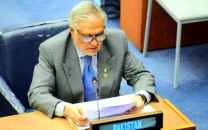

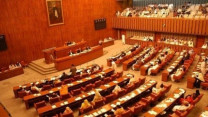

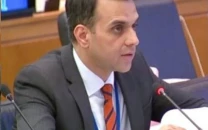
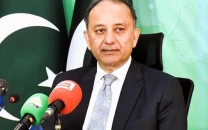












COMMENTS
Comments are moderated and generally will be posted if they are on-topic and not abusive.
For more information, please see our Comments FAQ